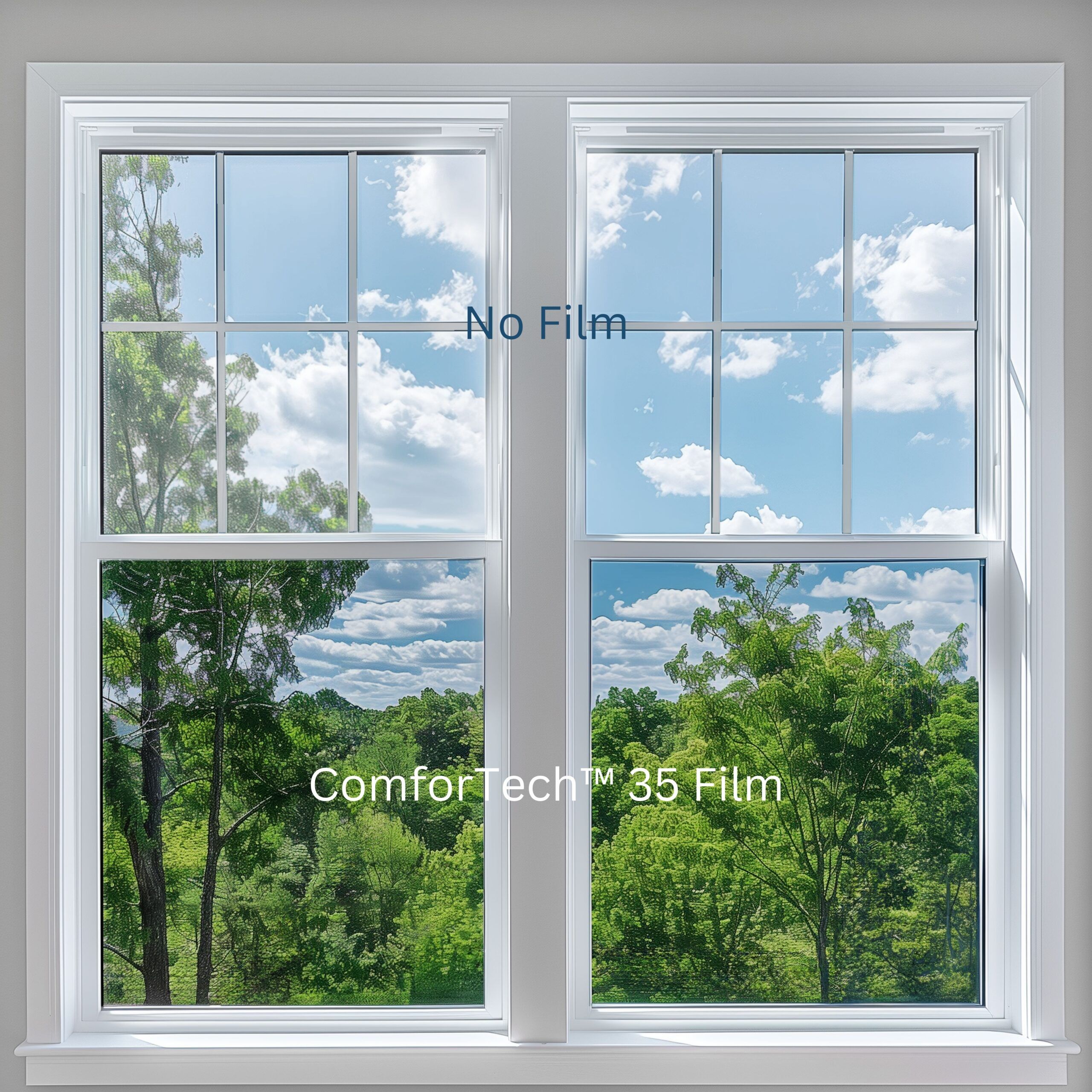Residential Window Tint: Keep Your Home Comfy Year-Round
Residential Window Tint: Keep Your Home Comfy Year-Round
Blog Article
How Residential Home Window Tinting Improves Your Home's Power Efficiency
Residential home window tinting provides an engaging service for homeowners looking for to boost energy performance within their living rooms. By using specialized films to windows, it efficiently lowers warm transfer, thereby supporting indoor temperatures and decreasing the demand for extreme heating or cooling.
Understanding Window Tinting
Comprehending home window tinting is vital for house owners looking for to boost both convenience and power performance in their space. Residential Window Tint. Window tinting entails the application of a thin film to the interior or exterior surface area of glass home windows. This movie can dramatically modulate the quantity of sunshine and warm that enters a home, thus influencing interior environment conditions
There are various kinds of window tinting movies readily available, each with distinctive properties. For example, colored films take in solar power, while reflective movies deflect it away from the glass surface area. Ceramic movies use a balance of presence and heat rejection, making them a preferred choice amongst home owners. The effectiveness of window tinting is commonly gauged by its Visible Light Transmission (VLT) portion, which indicates just how much light can pass with the movie.
Advantages of Energy Effectiveness
Window tinting not just enhances visual appeals yet likewise plays a substantial function in boosting energy performance within property rooms. By minimizing heat transfer with home windows, tinted movies create a much more secure indoor environment, which can lead to considerable decreases in energy intake for heating and air conditioning. This energy performance equates right into lower energy bills, offering home owners with considerable lasting savings.

Additionally, home window tinting boosts the comfort of living spaces. By decreasing glare and obstructing unsafe UV rays, colored windows develop an even more enjoyable environment, which can cause boosted well-being for owners. The protection versus UV rays additionally assists protect furnishings and flooring from fading, adding to the durability of home items.
How Tinting Functions
Tinting movies operate via a combination of advanced materials and technologies made to control the quantity of solar energy getting in a home. Largely made up of polyester, these films usually integrate metal or ceramic bits that take in and mirror warm. This twin ability permits them to considerably lower the penetration of ultraviolet (UV) rays and infrared radiation while permitting noticeable light to pass through.
The efficiency of home window tinting is measured by its solar warm gain coefficient (SHGC), which shows just how much solar have a peek at this site energy is sent through the window. Reduced SHGC worths are more suitable as they signify better heat being rejected. In addition, window tints can feature a selection of shades, enabling home owners to customize their aesthetic choices while enhancing energy performance.
Furthermore, these films serve as an obstacle, protecting against heat loss during colder months by showing interior warmth back into the home. This thermal insulation impact matches the air conditioning advantages gotten throughout warmer months, adding to a well balanced indoor climate year-round. By managing solar energy effectively, property window tinting not only boosts convenience yet additionally plays a vital function in decreasing energy consumption and lowering utility bills.
Picking the Right Color

There are different kinds of home window movies available, including dyed, metalized, and ceramic. Ceramic movies give outstanding warm control without endangering presence and are highly resilient, making them a preferred selection.
Visible light transmission (VLT) is an additional essential aspect, as it indicates the amount of natural light that can travel through the tinted glass. House owners need to pick a color with a VLT that enhances their lights choices while still giving ample glare decrease.
Additionally, examining the solar warmth gain coefficient (SHGC) can help determine how well a tint can block warmth from sunshine. A reduced SHGC suggests much better heat control, ultimately enhancing energy performance.
Installation and Upkeep Tips
Proper installment and maintenance are essential components in maximizing the advantages of residential window tinting. Specialists also make use of specialized tools and methods, which can boost the resilience and performance of the tint.
Complying with installment, upkeep is important to extend the life of the home window movie. It is advised to wait at the very least 30 days about his before cleaning the colored home windows to enable the sticky to cure completely.
Additionally, regular inspections are useful. Look for any peeling or bubbling, which might show inappropriate installation or wear over time - Residential Window Tint. Dealing with these concerns quickly can avoid additional damage and preserve energy efficiency. By adhering to these installation and upkeep suggestions, home owners can guarantee their window tinting remains to give substantial energy cost savings and comfort for several years to come.
Verdict
In final thought, household window tinting serves as an efficient solution for improving power effectiveness within homes. By reducing warm transfer and obstructing damaging UV rays, home window films contribute to decrease energy usage and boosted indoor comfort.
Home window tinting involves the application of a thin film to the inside or exterior surface of glass windows. By lowering heat transfer through home windows, colored movies create check here a much more steady interior climate, which can lead to substantial reductions in power intake for heating and cooling.The efficiency of home window tinting is gauged by its solar warmth gain coefficient (SHGC), which indicates how much solar energy is transferred via the window. By handling solar power properly, residential window tinting not only enhances comfort however likewise plays a crucial duty in reducing energy consumption and lowering utility bills.
By decreasing warm transfer and blocking dangerous UV rays, home window movies add to decrease power intake and boosted interior convenience.
Report this page